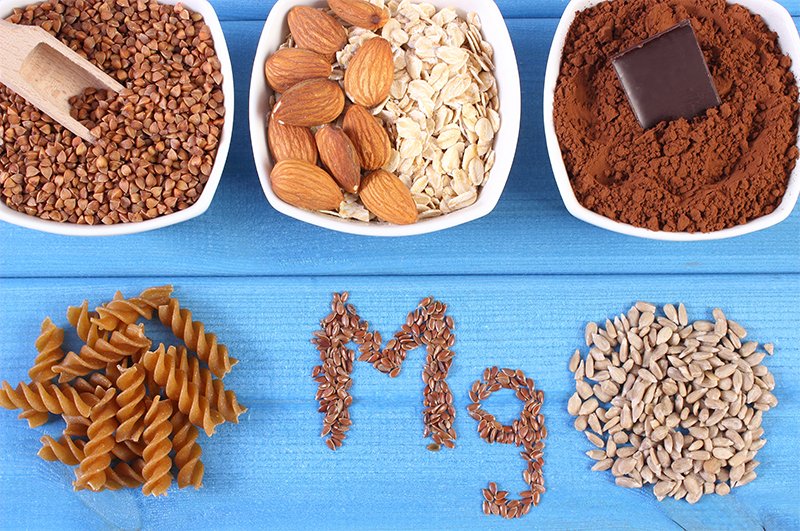4 Nutrients That Help With Bone & Joint Health You May Not Know
Calcium, vitamin D, vitamin K, and omega-3 fatty acids are often the big players that are linked to optimal bone health. However, you may be surprised to learn that there are other nutrients that are quite important when it comes to bone and joint health.
In addition to calcium, vitamin D, vitamin K and omega-3 fatty acids, several other vitamins and minerals, including magnesium, silicon, vitamin C, and boron have been linked to improved bone and joint strength, according to a study published in The Open Orthopedics Journal.
1. Magnesium
Magnesium deficiency contributes to the development of osteoporosis directly by acting on the formation of crystals and on bone cells, and indirectly by affecting the secretion, as well as the activity of parathyroid hormone, and by encouraging low-grade inflammation. Magnesium supplementation has been found to increase bone mineral density in osteoporotic women taking 250 mg/day of magnesium supplement, compared to individuals who did not take supplements.
Dietary sources of magnesium include:
- nuts (peanuts and cashews)
- cereals (bran flakes, raisin bran)
- black-eyed peas, brown rice, lentils and kidney beans
2. Silicon
Silicon improves the quality of the bone matrix and plays a role in the initiation of the bone mineralization process, while silicon deficiency has been associated with poor skeletal development.
Dietary sources of silicon include:
- whole grain cereals and granola
- fruits (apricots and prunes)
- green beans
- brown rice
3. Vitamin C
Vitamin C has been found to increase bone mineral density and improve bone strength by improving bone formation and remodeling, and is essential for the formation of collagen and the healing of fractures. Further, it may help to prevent osteoporosis as Vitamin C may decrease oxidative stress and subsequent bone resorption.
Dietary sources of vitamin C include:
- fruits (oranges, strawberries, grapefruit, cantaloupe)
- broccoli
- tomato and orange juice
4. Boron
While the exact role of boron in bone health has not been established, it does play an important role in osteogenesis. Boron deficiency has been found to negatively affect the development and regeneration of bone. Boron acts to influence the production and activity of steroid hormones, which helps to prevent calcium loss and bone demineralization. Studies have shown that boron supplementation significantly reduces urinary excretion of calcium and magnesium, and increases serum levels of estradiol and absorption of calcium in peri-and post-menopausal women. Additionally, boron beneficially affects the utilization of vitamin D.
Dietary sources of boron include:
- fruits (prunes, raisins, apricots)
- nuts (peanuts, almonds)
So if you’re looking to improve your bone and joint health, try adding some dietary sources of these lesser-known minerals and vitamin. Adding these elements into your diet is quite easy as they are readily available in a variety of foods.
You may also like:
Milk – It’s Not The Only Source Of Calcium That “Does A Body Good”

